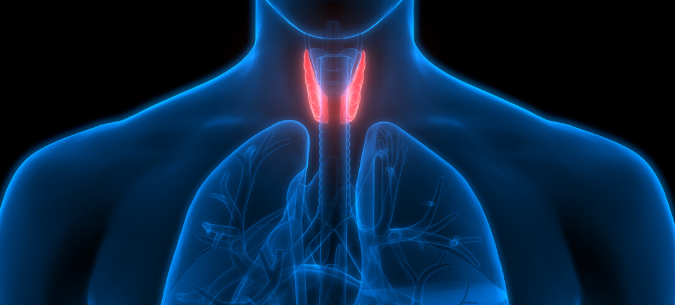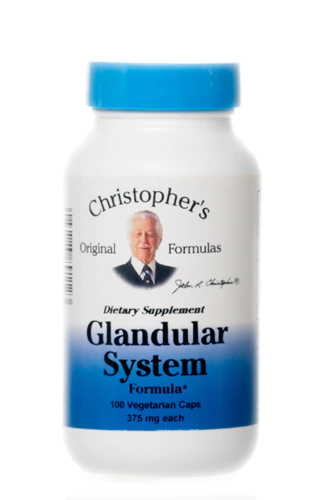
Parathyroid Imbalance Can Cause Anxiety and Depression
Share
If you're like us, you probably don't think of your parathyroid glands very often...if ever. However, these pea shaped glands are very important to overall health. An imbalance it can cause a host of problems including anxiety, lack of concentration, loss of energy, depression, high blood pressure, trouble sleeping, gastric reflux, headaches, osteoporosis and even mental instability.
Why the Parathyroid is so Important
So what does the parathyroid do and why is it so important? The parathyroid glands are part of the Endocrine system. In short, the parathyroid works to regulate calcium and phosphorus in the body. It is instrumental in:
- normalizing blood clotting
- promoting bone and teeth health
- increasing cell membrane permeability
- protecting the health of the nervous system
So obviously the parathyroid is an important part of the body! Why don't we discuss it more often? It's interesting as the parathyroid was one of the last organs to be discovered. Maybe its late discovery contributes to the fact that it is rarely mentioned? The most common problem with the parathyroid is hyperparathyroidism, or hyper-activity of the parathyroid glands which can produce a calcium imbalance. According to research, primary hyperparathyroidism (PHPT) is the third most common endocrine disorder and the most common cause of hypercalcemia in the outpatient setting. Since the main function of the parathyroid is to help regulate calcium in the body, it performs a very delicate job. Even a small parathyroid imbalance may cause an issue. Calcium in the body is integral for our nervous system, muscular system and skeletal symptom to function properly. Please note that mere calcium supplementation may not address or even help a parathyroid imbalance. Think of it like trying to refuel a car with an engine problem...you need to address the engine problem to actually find a solution.
The Parathyroid and Anxiety/Depression Connection
Symptoms of a parathyroid issue can be anxiety and depression, however, this is not something that is normally discussed. Most likely, many of you reading this have never even considered that your parathyroid might be giving you trouble. However, research in the October 2012 issue of Archives of Surgery found a compelling link between hyperparathyroidism and anxiety and depression. Another study found in the American Board of Family Medicine, also established a link between parathyroid issues and depression. Thankfully, there are steps that you can take to help correct an imbalance and nourish the parathyroid.
Natural Tools to Feed the Parathyroid
When looking at natural tools to help the parathyroid, you want to look toward tools that boost and feed your glandular system. For instance, Kelp is nutrient rich, easy to find and is known to nurture the parathyroid. The great thing about using foods to feed our organs is that the body automatically recognizes food and can utilize it. This is not always the case with supplements, as it is important that the body recognizes and utilizes the nutrients. High-quality supplements with long track record of success are always the best choice. We especially love the Dr. Christopher line of supplements with a healing history dating back to 1945. His philosophy of "getting back to the cause of the disorder" was his driving force in creating amazing herbal blends that are still popular today.

When it comes to nourishing the parathyroid, Dr. Christopher makes a supplement called Glandular System. This specially formulated herbal product feeds the entire glandular system. An easy exercise to help stimulate the parathyroid is to gently lower your chin down to your neck to compress the gland. This feels especially good during meditation. Make sure to be gentle and not jerk your head down! You want to create a soothing compression on the gland. Please talk to your doctor before starting any supplement. Getting the information you need will help you take control of your health and feel your best!
